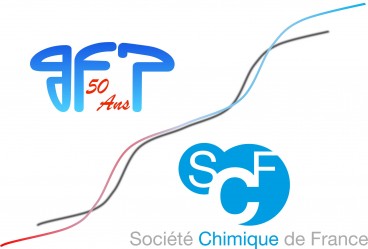Étienne Grau obtains the joint SCF/GFP award!

This joint prize awarded by the Société Chimique de France and the Groupe Français d'études et d'applications des Polymères is attributed by the two learned societies every two years to a French chemist, aged 40 or less, who made significant contribution in polymer chemistry.
His work rewarded by the joint SCF/GFP prize
Today, Étienne Grau research at the LCPO is focused on the valorization of biomass using green chemistry methodologies (catalysis, green solvents...) for the synthesis of polymers of interest. The driving force behind all his research topics is to develop the next generation of polymers with better thermomechanical properties while having the lowest impact on the Earth, starting from renewable resources and taking into account their end of life.
- New primary amine synthesis pathways have been developed from alcohols for the synthesis of polyurethane by cyclic carbonate aminolysis, which avoids the use of isocyanates.[link] We have developed a method for evaluating the reactivity of our synthesized monomers as well as methods for modulating this reactivity.[link] Carbonates with as good reactivity as with isocyanates have been obtained. More recently, the impact of polymerization processes (emulsion [link], reactive extrusion [link]) to obtain poly(hydroxyurethanes) has been studied.
- The synthesis of biosourced polymers with controlled architecture also represents an important part of our work in recent years. Thus di-block, multi-block but also hyper-branched polymers have been obtained. In the case of hyper-branched polymers, advanced characterization techniques have made it possible to accurately determine their microstructure.[link]
- Starting from lignin, a polymer platform based on the dimerization of vanillin has been developed within the LCPO. Divanillin is thus a precursor of a monomer equivalent to DGEBA.[link] The networks obtained have similar or even superior properties (in particular fire resistance) compared to those based on DGEBA.
- Finally, we are studying the ROMP of cyclic terpenes giving access to completely aliphatic polymers with properties close to EPDM and thus allowing the production of elastomers.[link] Such polymers open the way to many other applications that are currently being studied.
